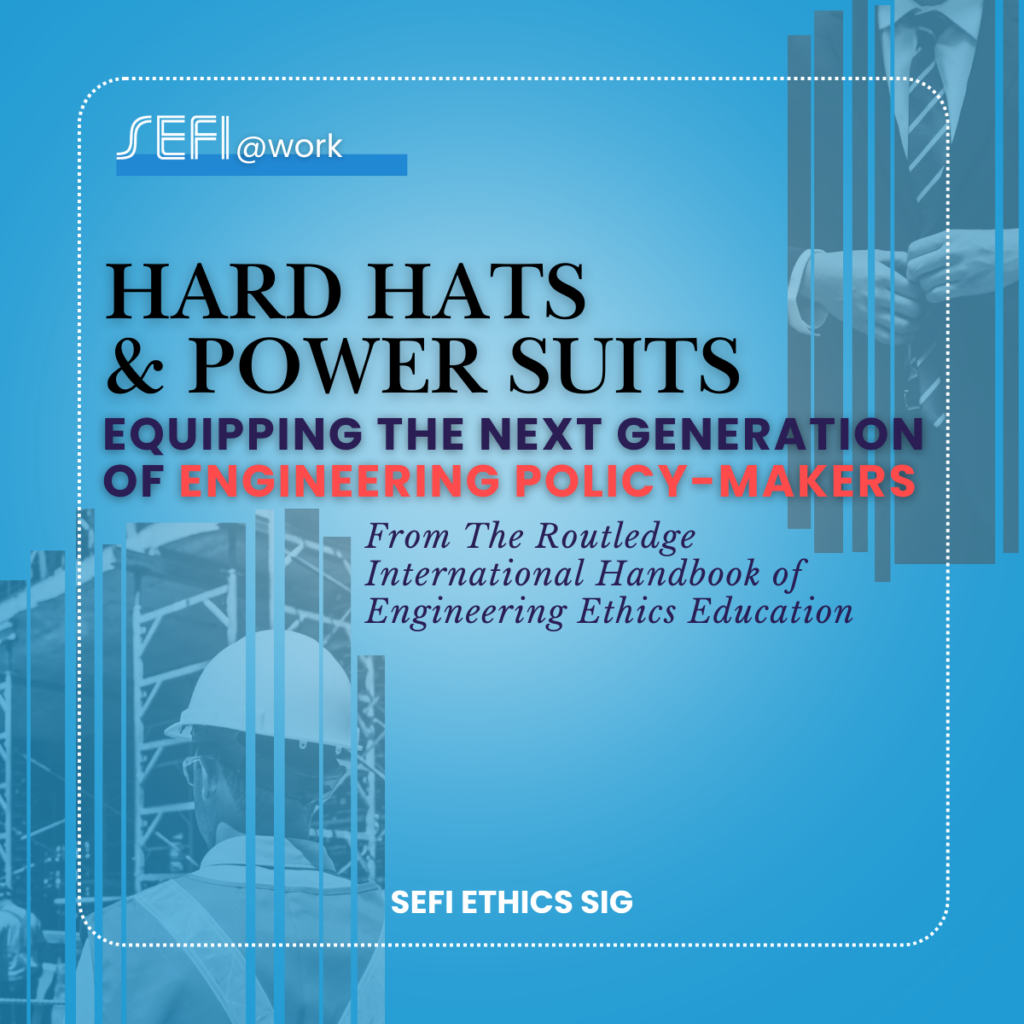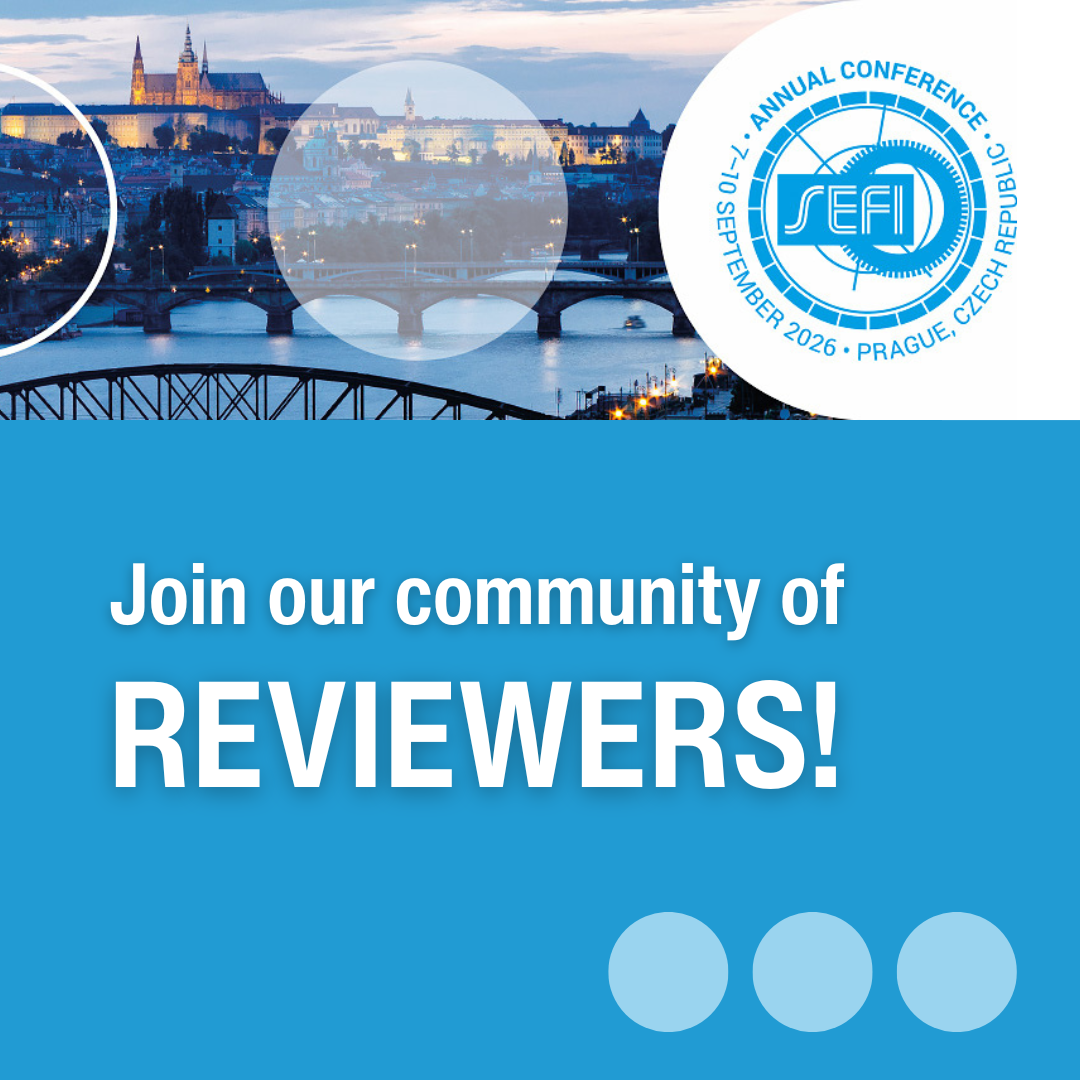At SEFI, we believe that diversity across all dimensions is essential to enriching engineering education…
How can we prepare engineering students not only to design technical solutions, but also to understand and possibly influence the policies that underpin those solutions? That question was central to the recent SEFI@work symposium, Hard Hats and Power Suits, held online on 13 May 2025.
The event gathered contributors to the International Routledge Handbook of Engineering Ethics Education to discuss how engineering education can help students engage with public policy and governance.
Law and technology are connected
Dr. Andreas Kotsios, Senior Lecturer/Associate Professor at Uppsala University, explained that engineers often interpret laws through their design decisions. He argued that legal reasoning should be part of ethics education, since engineers shape how laws are implemented in practice.
Ethics is political
Speakers emphasized that ethics is more than individual integrity. Ethical questions are embedded in political and institutional structures. Dr. Dayoung Kim, Associate Professor at Virginia Tech, noted that engineers need to be able to communicate not only what technologies can do, but also what they cannot. This is especially important in addressing challenges like climate change.
The “post-normal” engineer
A key concept introduced was the “post-normal engineer”. It refers to a practitioner who understands the social, political, and environmental dimensions of engineering. Gaston Meskens, University of Gent, argued that engineers should take part in public discussions, especially when their design work influences policy outcomes.
Teaching must adapt
The panel agreed that ethics and policy should be integrated directly into technical courses. John Mitchell, Professor at University College London, stressed that these topics should not be confined to standalone ethics modules. Engineering students must learn to consider social and political consequences as part of the design process itself.
Engineers must be ready for more than technical work
The symposium ended with a call to action: educators should prepare students not just to design systems, but to understand the frameworks those systems operate within. Policy literacy should be seen as part of professional competence.
As one speaker concluded:
“Policy is not just for politicians. Engineers shape it through innovation and implementation.”
Conclusion:
Engineering design decisions are policy decisions. Engineering education must evolve to prepare students for this reality and empower them to take an active role in shaping the future.




